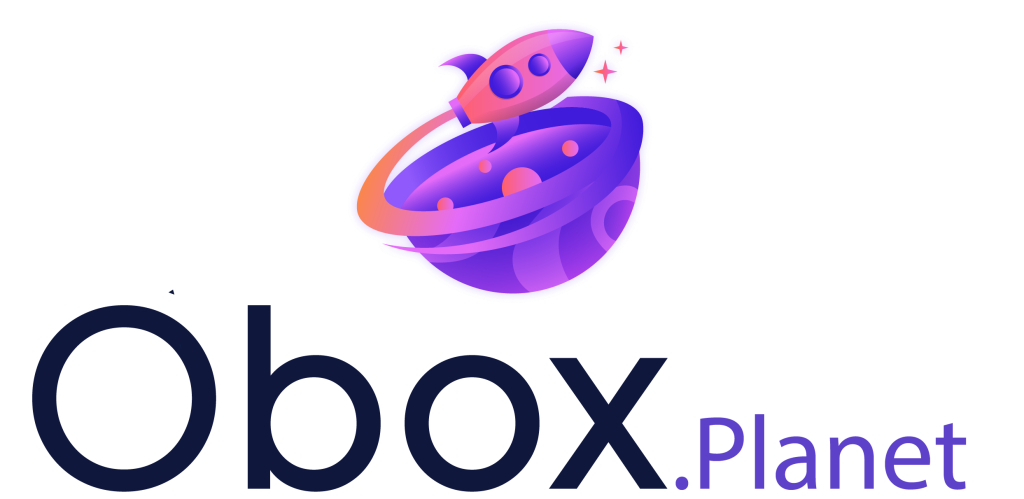Lab a4: Sex and drugs
Sex and drugs
On OboxPlanet, drugs, pornography, and prostitution are safe, peaceful, and innovative lines of business. Just like any other industry, these historically controversial businesses are not regulated at all.
But how could that work? Wouldn’t this ruin society? Wouldn’t it encourage “bad” behavior, addiction, and violence?
Again. We get it. OboxPlanet is very different than earth, but this is also where it gets interesting.
Let’s look at the sex industry first. This line of business is perceived differently by different communities on OboxPlanet. This is why there are certain communities with contractual bans of prostitution while there are others where it is completely legal (obviously as long as it’s consensual). Still, certain things are off-limits. People that violate the generally agreed-upon minimum standards (e.g. rapists, people that consume child pornography) are dealt with by physically pushing them out of all civilized societies. Nobody wants to deal with them, and the ostracization has proven to be the most brutal and effective punishment.
Now on to the drug industry. Obviously, there are people who abuse drugs and get addicted. This happens in all societies. However, with the legalization of drugs, a lot more research has been done, and a lot of the formerly deadly drugs have been made saver for consumption. The use of psychedelic drugs in therapeutic areas has also been advanced, and treatments are widely available and up to the patient to choose. The biggest difference to our earth is the absence of a black market, which makes the manipulation of drugs a lot harder.
Join us next for a firsthand-account, an interview in the section “Exploration Room” below.

This interview was held on the OboxPlanet by Marco, an experienced traveller to the planet. Jan 45, ist the father of Mikka, 19, both live on the OboxPlanet.
Marco: What was it like growing up with all drugs freely available?
Jan: I never really thought about it because I can’t imagine any other world. As kids, we only used drugs for medical purposes, and we observed how adults used them recreationally.
Marco: What was it like as a kid, watching adults using recreational drugs?
Jan: When you’re really young, you just observe without judgment. Some people looked and acted funny, others could be scary, and my parents would explain why. As I grew older, I learned to recognize who was taking what drug, if they took a noticeable amount. But most of the time, adults used them moderately. Some drinks before a party, coffee or amphetamines to stay awake, and downers to relax—that was, and still is, normal.
Marco: What did your parents teach you about drug use?
Jan: They taught me that, like everything in life, drugs have pros and cons. They emphasized, “sola dosis facit venenum”—the dose makes the poison. My parents explained the effects and side effects of different drugs and advised us to try new things at home first. That approach worked for most of what I tried. Ultimately, what I observed was more influential than what my parents told me.
Marco: Did you have some wilder periods in your life?
Jan: Yes, my friends were quite wild, and we experimented with just about everything: uppers, downers, psychedelics. I had hangovers that made me swear off certain drugs, but that never lasted long.
Marco: When and why did you quit?
Jan: I didn’t quit, just slowed down. Discovering a new drug was like watching an exciting new movie—great the first time, but it wears off after a while. Today, I don’t miss the wild times. I enjoy a little buzz occasionally but mostly prefer sober happiness.
Marco: What are or were the most popular drugs?
Jan: The classics are “straight from nature,” so to speak: alcohol, opium, cocaine, mushrooms, peyote, and caffeine, if you count that. In my circles, tobacco has largely been replaced by cannabis because the cost-benefit ratio is better. Synthetic drugs like MDMA and LSD come and go.
Marco: And where do you get them?
Jan: In drug stores. Most substances are used for both medical and recreational purposes. For recreational use, you can find all conceivable forms: pills, drinks, powders, capsules, smoking paraphernalia—you name it, they have it. Nowadays, all products come with consumption suggestions, known effects, and side effects. But I think my daughter Mikka can tell you more about today’s trends and fads.
Marco: Okay, thank you, Jan. Hi Mikka. Are you a party girl, and is yours a party generation?
Mikka: Hi! I’m 19 years old, and of course, we have parties.
Marco: How often do you go, and what role do drugs play in your life?
Mikka: You mean recreational drugs that affect your mind and mood? Well, I think I’m quite average. We all grow up knowing that drugs are part of life and can either enrich or endanger your well-being. We learn to be respectful. “Normal” kids use coffee, alcohol, amphetamines, and cannabis, and then there are parties for psychedelics.
Marco: Is there a lot of abuse?
Mikka: There’s a group of youngsters who don’t use drugs at all, often for religious reasons. On the other extreme, some overdo it, trying to show off and ending up making fools of themselves. Others have serious problems and use drugs to escape reality. And then there are subcultures that celebrate certain substances and rituals.
Marco: Has it always been the same, or do you think you live in special times?
Mikka: Overall, I think my generation is more sober than my parents’. But drugs have been around for hundreds of years. The substances change and come and go, but the issues of use and abuse remain the same.
Marco: And are they expensive?
Mikka: No, not really. Most grow in nature and require only a small quantity.
 What experiences on Earth, past and present, help us understand life on the OboxPlanet?
What experiences on Earth, past and present, help us understand life on the OboxPlanet?
As far as sex, Prostitution laws have changed a lot over time.
In ancient Greece and Rome, it was accepted and regulated. During medieval times, influenced by Christian beliefs, it was often criminalized. In the 19th century, Britain and its colonies had strict regulations, while others had different approaches. In the 20th century, the US criminalized prostitution, Sweden targeted buyers, and Germany and the Netherlands legalized and regulated it.
Criminalizing prostitution has never eliminated the business but has driven it underground, creating a black market with the logical consequence of higher prices and lower quality. Since the “product” are real live people, forcing them to work on the black market, “hidden from the light”, can seriously endanger their well-being and even their lives. Pimps who claim to protect them often exploit them instead, making prostitutes entirely dependent on their character. As we all know from films and documentaries, this leads to generally unfriendly or even horrific conditions, which contrasts sharply with the safe and clean business environment on the OboxPlanet
Concerning drugs, we don’t have to go far back for experiences we can relate to.
During the 19th century, substances like opium, morphine, cocaine, and later heroin were freely available, over the counter. They usually started out for medical purposes and then get used for pleasure, inspiration or sensations of powress, drugs should, in other words, alleviate sickness and augment health. Various groups of people experienced waves of use and misuse, leading to regulations and prohibitions, particularly after 1900. Each effort to regulate or prohibit drugs has had particular effects which may differ, they do have some common effects that help us understand what people on the OboxPlanet do not have to put up with. Let’s look at some concrete examples.
One of the most radical experiments in prohibition was the outlawing of alcohol in the United States during the 1920s. It illustrates most of the general effects of drug prohibitions:
The Prohibition of Alcohol lead to widespread non-compliance with law. It caused demand for a black market and this in turn to a rise in organized crime and police corruption. This had a lasting effect, even after prohibition ended. The power of law enforcement got strengthened, including the creation of new federal agencies, illustrating that the powers that state agencies gain, they want to keep. Existing state bureaucracies which lose their enemies, keep finding new ones. After alcohol came the prohibition of weed, then psychedelics, then cocaine etc.
During prohibitions, the market for the prohibited drugs gets distorted. The price of alcohol rose, its quality declined, even poisonous alcohol got sold . The potency, in this case the percentage of alcohol per gallon rose because it is easier and more profitable to smuggle Whisky than beer. With drugs like opiates, consumers choose more effective methods of consumption, for example shooting opium into the veins instead of smoking or snorting it. Combined with the untested quality of the drugs, this leads to overdoses, HIV-problems and other health issues.
While the prohibition of alcohol was repealed after 13 years, while the ”war” on other drugs rages on. Its success can be illustrated by the fact that illegal drugs are reportedly available and used in prisons, even locking up people can’t stop them. Meanwhile, the US has the biggest prison population of the world with a sizeable part of the inmates doing time for consuming or trading drugs, many of them getting their education for a lawless career after release…
These effects can be illustrated in reverse when we look at what happens when states take a more liberal approach to drugs. Portugal in 2001, switched from punishing small time users to focussing on the treatment of abusive users. It seems that overall use has not increased significantly while there is a clear decrease of drug-related harm and crime, with positive effects on public health and the law enforcement budget.
The reason we dwell on these fact is to illustrate all the things that do NOT exist on the OboxPlanet. While paradise is no option, drugs there are well known, documented, available in all forms and flavors, just like alcohol on Earth today. There are no drug-producers, drug-sellers or drug-consumers in prison, the whole police and crime scene related to drugs is inexistent, it is all about self-responsibility and helping those with proble

Now it’s your turn.
How would you change your use of alcohol and other drugs, if everything was freely available? What part of all crimes today do you think are made possible by outlawing drugs?
Things we could learn and implement from the OboxPlanet:
Very simple: end the war on drugs because it is a futile war on drug users. As a first step, regulate them like alcohol. As a second step, eliminate all regulations and restrictions. And legalize the oldest trade in history, prostitution.

